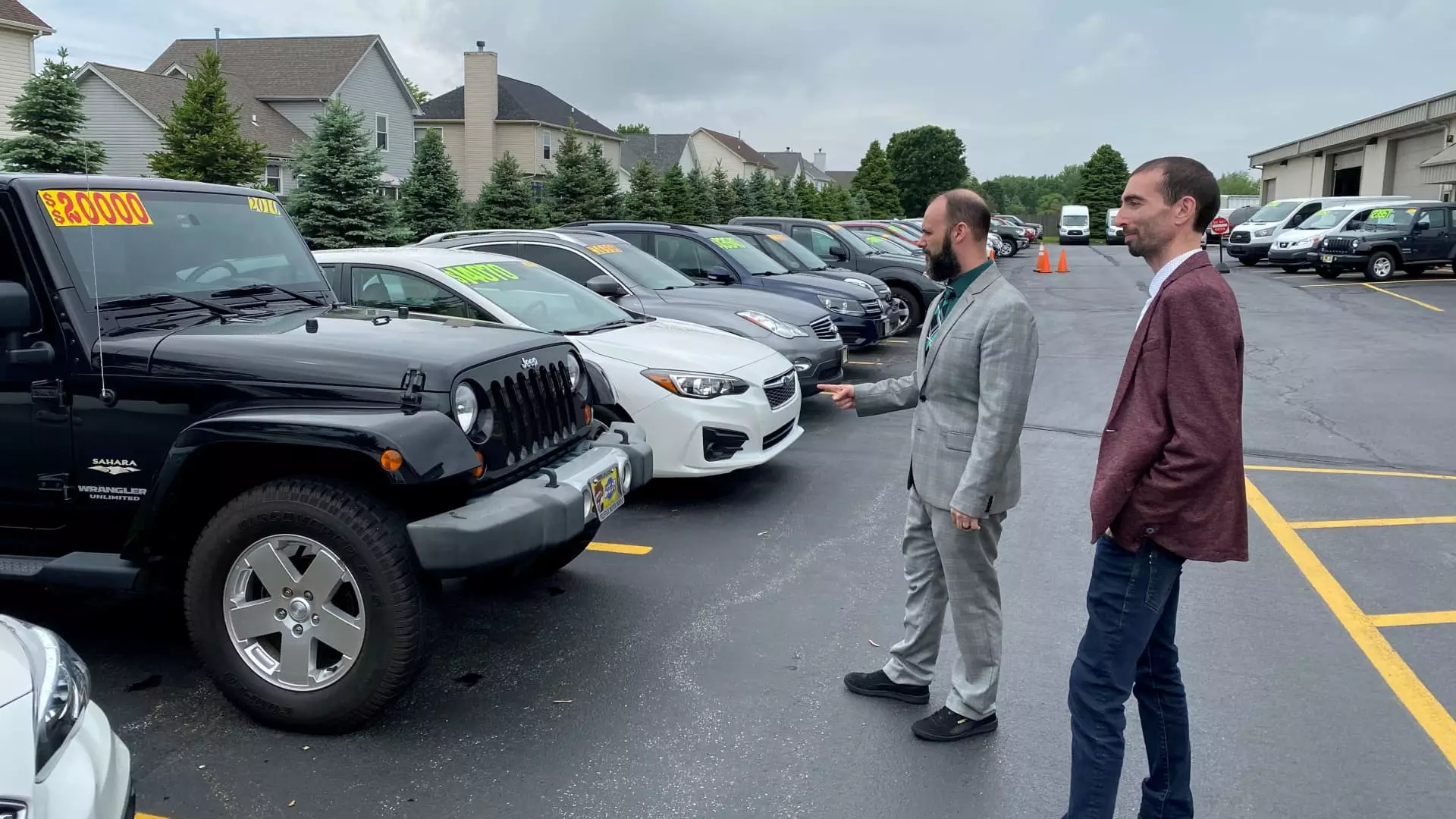The automotive industry stands at a transformative juncture as we transition into 2025. Recent reports suggest a burgeoning optimism among U.S. car dealers, driven by several factors, including political shifts, economic indicators, and market trends. However, amid this renewed excitement, concerns linger, particularly in the realm of electric vehicle (EV) sales. This article explores the intricate landscape of the automotive sector as dealers assess their prospects for the coming year.
The Impact of Political Changes
The election of President Donald Trump has reignited a wave of optimism across the automotive retail landscape. Cox Automotive’s latest Dealer Sentiment Index reveals a substantial rise in the confidence of dealers, attributed largely to the resolution of political uncertainty that has dominated recent years. With a score increase from 42 to 54, dealers are displaying a more favorable outlook compared to last year’s dismal ratings. This resurgence suggests that the recent political climate has alleviated some trepidation that dealers previously held regarding the sustainability of their businesses.
Interestingly, the political landscape’s impact is not uniform across all sectors within the automotive industry. While many dealers express a hopeful sentiment about general market conditions, the enthusiasm concerning electric vehicle sales has not paralleled this trend. Many signal a retreat in their expectations, indicating that potential regulatory shifts under a Trump administration could hinder the growth in the EV market.
Despite an overall positive shift in sentiment among dealers, the outlook for electric vehicle sales remains troubling. According to the recent index findings, the majority of dealers anticipate a downturn in EV sales in the near future. Primary concerns stem from the possibility of reduced federal incentives and tax credits, which are critical drivers for EV adoption among consumers. The former administration’s robust push for supporting electric vehicle technology seems poised for a reversal given the new political backdrop, raising alarm among dealers who rely on these incentives to stimulate buyers’ interest.
Cox’s Chief Economist, Jonathan Smoke, emphasized the importance of these tax incentives, stating, “Tax credits are working in both the new and used markets.” The mention of a potential repeal or reduction of these credits positions the EV market at a disadvantage, especially amidst a backdrop of rising competition from legacy automakers enhancing their offerings in gasoline and hybrid vehicles.
Despite these challenges, dealers are increasingly optimistic about general market conditions, spurred by indicators such as lower interest rates and favorable automaker-supported sales promotions. As inventory levels normalize following supply chain disruptions caused by the pandemic, consumers are witnessing relatively stable vehicle pricing. This stability has translated into healthy stock performance for major auto dealer groups such as AutoNation and Lithia Motors, which have seen impressive year-to-date growth percentages.
The market outlook index’s significant leap to a score of 54 suggests that dealers believe the retail landscape will strengthen in the upcoming months. Yet, it’s essential to recognize that this confidence doesn’t negate the fact that a majority still view current trading conditions as weak, reflecting a cautious optimism that stems from an uncertain economic climate.
Looking Ahead: Opportunities and Challenges
As we approach 2025, the automotive industry’s dynamics present both exciting opportunities and formidable challenges for dealers. Although they have expressed optimism regarding the short-term outlook, the specter of fluctuating EV policies and market conditions raises pertinent questions regarding long-term sustainability, especially in the electric vehicle segment.
Furthermore, the impact of fluctuating interest rates and possible tax incentives will need to be monitored closely as they play a crucial role in shaping consumer buying behaviors. The auto sector’s resilience will undoubtedly be tested, and dealers will need to adapt to the evolving landscape to remain both competitive and profitable.
While the automotive market appears on the precipice of rejuvenation with renewed optimism in overall sales, the hesitation surrounding electric vehicle prospects highlights the complexities and uncertainties that continue to pervade the industry. The road ahead into 2025 may be promising, yet it demands adaptability and strategic foresight from all stakeholders involved.

